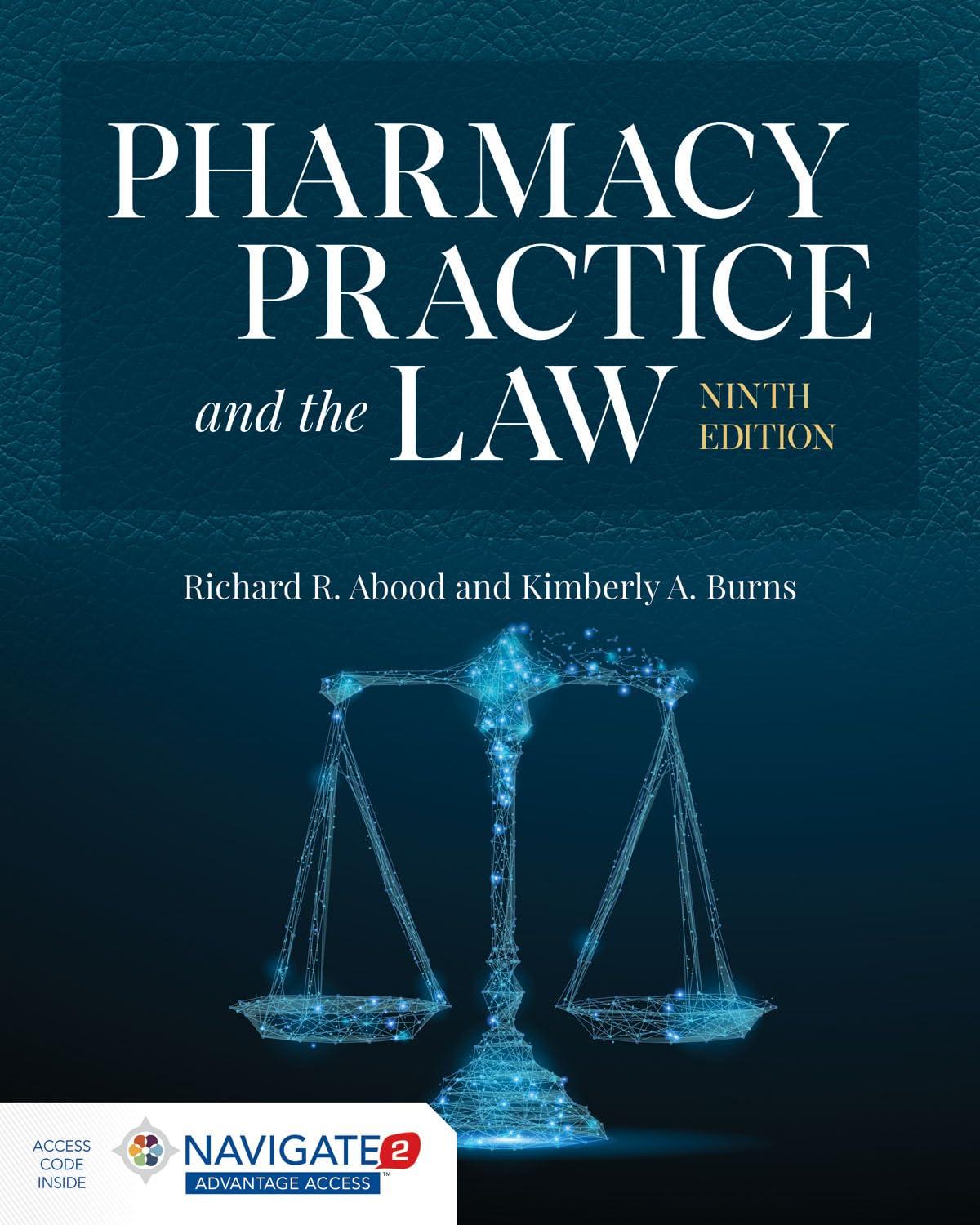In any self-regulating profession, there is always a question of whether the regulations enacted by the group
Question:
In any self-regulating profession, there is always a question of whether the regulations enacted by the group to govern itself are really intended to protect the public or are instead intended to protect the profession. This “fox guarding the hen house” issue has plagued pharmacy regulators since boards of pharmacy were first established for the sole purpose of protecting the public health from unsafe pharmacy practices. The history of self-regulation in pharmacy includes several unfortunate episodes of economically driven rules that were intended to protect the finances of pharmacists rather than the health of the public. In this case, one such rule is reviewed. It is a rule from the state of Virginia that forbade pharmacists to advertise price information. As you read this case, make a list of the benefits of such a rule from a public health perspective and also list the ulterior motives for such a rule that may perhaps have been the “hidden agenda” of the profession.
Evaluate the entries on the list in terms of their relationship to the public health. Ask yourself whether the list weighs more heavily in favor of the regulation or against the regulation from your perspective within the pharmacy profession. What might you expect to be the public perception of this list?
Are there any rules that protect the public health and also promote the profession that would be considered appropriate for a self-regulating group?
If so, what are those rules?
Step by Step Answer:

Pharmacy Practice And The Law
ISBN: 9781284154979
9th Edition
Authors: Richard R. Abood, Kimberly A. Burns





